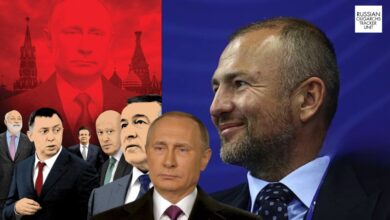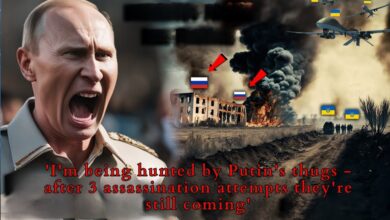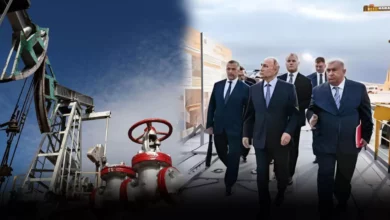Exiled Ukrainian Oligarch Runs Disinformation Platform in Russia: Concerns Over Press Freedom and Cultural Identity in Moldova’s Gagauzia Region
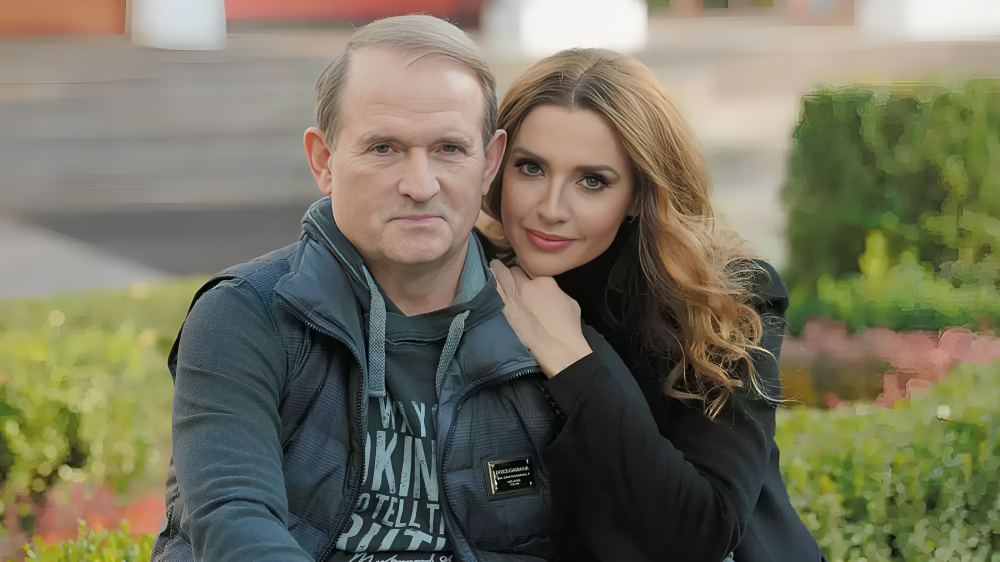
Viktor Medvedchuk, a Ukrainian oligarch with close ties to Vladimir Putin, sought sanctuary in Russia following his departure from Ukraine, where he is confronted with charges of treason. Leading a Russian-language platform, he advocates Kremlin narratives concerning Ukraine and the ongoing conflict. However, his recent engagement in disseminating misinformation has encountered obstacles.
Exiled Ukrainian Oligarch
Every day, new phrases reinforce messages from Another Ukraine, a Russian-language portal launched in 2023: “Russia is Ukraine’s only salvation,” “They wanted NATO and are ready to die for Western interests.” The news is uniformly negative.
The project, officially led by Viktor , a leading figure pushing pro-Kremlin interests in post-Soviet Ukraine, is orchestrated by Ilya Gambashidze’s Social Design Agency, a Russian IT company closely linked to the Kremlin. The digital platform claims to “unite dynamic forces capable of reversing the situation and pulling the Ukrainian people out of the impasse in which they find themselves”.
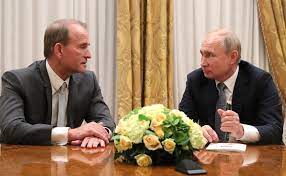
Medvedchuk has been a conduit for Moscow’s interests in Ukraine for 20 years, with close ties to Russian President Vladimir Putin. Their personal bond deepened when Medvedchuk became Putin’s “kum”, a term of kinship in Slavic culture, with Putin as godfather to Medvedchuk’s youngest daughter.
Placed under house arrest in May 2021 after being charged with treason, Viktor escaped and went on the run after the full-scale Russian invasion of Ukraine on February 24, 2022. He was eventually recaptured and released in a prisoner exchange in September 2022, causing a sensation in Ukraine.
“Alternative narrative”
Russia provided refuge for Medvedchuk, akin to another disgraced Ukrainian, former president Viktor Yanukovych, who fled to Russia following the Maidan revolution (2013-2014) and was later convicted in absentia for high treason.
Stripped of his Ukrainian nationality, Medvedchuk, aged 69, realized his lack of prospects in the country. Russia’s invasion of Ukraine further marginalized Ukrainian forces loyal to Moscow, leading to the banning of the Opposition Platform–For Life party, co-founded by Medvedchuk, and the suspension of three television channels under his informal control.
This shift infuriated Putin, considering Medvedchuk’s channels as a bridge for resolving the Ukraine issue through political means. Medvedchuk’s exile weakened the Kremlin’s influence in Ukraine and pushed the country further from the Russian orbit.
Despite being despised in both Ukraine and Russia, Medvedchuk’s allegiance remains crucial to Putin, who relies on him to fuel the ideological narrative the Russian leader desires.
In January 2023, Medvedchuk broke his silence by writing a column in “Izvestia,” positioning himself as a representative of the “peace party” against a Ukrainian elite labeled as “neo-Nazi” and belligerent, manipulated by the West.
Despite losing credibility and media holdings in Ukraine, Medvedchuk persists in propagating disinformation and pursuing his interests. Another Ukraine, officially located in central Moscow, serves as the latest outlet for his ambitions. Its nature remains nebulous, defining itself as a “movement” with Medvedchuk as “chairman of the council.”
The project’s communications strategy is entrusted to the Social Design Agency led by Gambashidze, focusing on targeted information dissemination to interact with Ukrainians with pro-Russia convictions.
Testing storylines
Another Ukraine seeks to appeal to the pro-Russian segment of the Ukrainian population and establish a connection with it, according to Shekhovtsov. One approach involves gauging this population’s response to various narratives. The project utilizes the image of the Bohdan Khmelnytsky monument in central Kyiv, symbolically praising him for seeking protection from Moscow, despite differing interpretations of his legacy.
In a 2021 publication titled “Histoire partagée, mémoires divisées” (Shared history, divided memories), historians Volodymyr Masliychuk and Andrii Portnov highlight an inscription on the monument’s pedestal paying homage to Khmelnytsky in Russian: “Russia, united and indivisible.”
Additionally, the project manages “assistance centres” for Ukrainians temporarily in Russia and willing to settle there permanently. However, according to Savchuk, an investigator for Radio Svoboda, this influence operation is perceived negatively in Ukraine, seen as a collection of pariahs financed by Medvedchuk.
Furthermore, Another Ukraine is accessible online within Ukraine only through a VPN (Virtual Private Network). Despite this limitation, the movement aims to expand its influence beyond Ukraine and Russia, as demonstrated by its recent announcement of a Serbia division, headed by Dragan Stanojevic, a pro-Russian populist MP with extensive business ties in Ukraine.
Savchuk describes this collaboration as mutually beneficial, enhancing Stanojevic’s image among his electorate and showcasing Another Ukraine’s influence internationally. However, transforming Medvedchuk into a respected figure abroad may be overly ambitious.
Shekhovtsov doubts the Social Design Agency’s ability to improve Medvedchuk’s image, emphasizing the need for a charismatic public face for Another Ukraine to gain credibility internationally, which is currently lacking.




